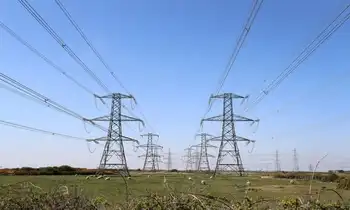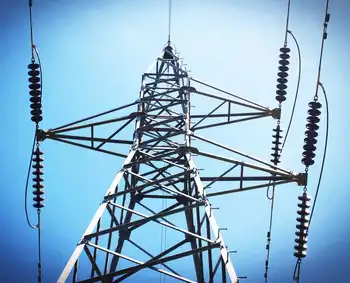Washington challenged on nuclear waste storage
By New York Times
NFPA 70e Training - Arc Flash
Our customized live online or in‑person group training can be delivered to your staff at your location.

- Live Online
- 6 hours Instructor-led
- Group Training Available
The three states argued that the policy, adopted in December, violated two federal laws requiring that a full environmental review be carried out at each nuclear site before permission for long-term storage could be granted.
“Our communities deserve a thorough review of the environmental, public health and safety risks such a move would present,” New York’s attorney general, Eric T. Schneiderman, said in a statement.
In a phone interview, Attorney General William H. Sorrell of Vermont said “a prudent federal response to the problem of spent fuel storage might be different from one site to the next — that’s what this is about.”
The attorneys general noted that storage of nuclear waste remained a nagging issue for the federal government. After years of work by the Energy Department to prepare Yucca Mountain in Nevada as a permanent repository for nuclear waste, the Obama administration in 2009 ruled out using that site. State utility regulators have challenged that decision in a lawsuit.
“It puts more pressure, frankly, on the federal government and the nuclear power industry to come up with long-term — and by that I mean permanent — solutions,” Mr. Sorrell said of the suit. “If we take our feet off the accelerator there, the politics and other considerations of permanent storage will be allowed to go unresolved for a longer period of time.”
Yet the potential impact of the lawsuit, and even the commissionÂ’s position on waste, is unclear.
David McIntyre, a spokesman for the Nuclear Regulatory Commission, said the lawsuit by the attorneys general had mischaracterized the nature of the December decision. He described it as a commission “opinion” on how long waste could be safely stored rather than a rule permitting any plant to store spent fuel.
But people who favor building new reactors said the adoption of the policy was important because it helped outline a legal basis for approving the construction of new reactors and long-range plans for handling their spent fuel.
Most of the nuclear plants running today were designed at a time when engineers thought that spent fuel would be stored for a few years in an earthquake-proof pool at the site. Then it would be moved to a different site where it would be chopped up and chemically processed so that some parts could be reused, the thinking went.
But efforts to develop storage and reprocessing sites for nuclear waste stalled, and most nuclear plants ended up with too little storage space in their pools to accommodate the waste.
With no place to send the fuel, nuclear operators have instead built “dry casks,” small steel and concrete silos, filed with inert gas, into which old fuel can be sealed. Most nuclear plants in the United States either store fuel in casks now or have plans to do so.
The Nuclear Regulatory Commission licenses dry casks for 20 or 40 years, and then decides whether the licenses can safely be renewed, or whether additional precautions should be taken. The first casks were initially licensed for 20 years, and some have received 40-year renewals.
Mr. McIntyre said the underlying reason for the commission’s December “opinion” was that such casks were “working really well.”
The commission does not require that an environmental-impact statement be prepared for a site before it grants an extension, he acknowledged, but he said that in some cases there had been public hearings.
The casks require security guards, and at some sites the presence of the waste has made it impractical to reuse the land for any other purpose. At the Connecticut Yankee nuclear power station in Haddam Neck, Conn., torn down in 2007, all of the fuel ever used by the reactor over its 28 years of operation is now sitting in dry casks.
In announcing in 2009 that it would drop its application for a license for Yucca Mountain, the Obama administration established a commission to pursue other solutions.
The panel is exploring technologies for reuse of some components of the fuel and developing a process for choosing the site for a repository.
In New York, the lawsuit had another political subtext. The licenses of the Indian Point 2 and 3 reactors in Buchanan are nearing expiration, and Gov. Andrew M. Cuomo opposes a 20-year extension sought by the plantÂ’s owners.











